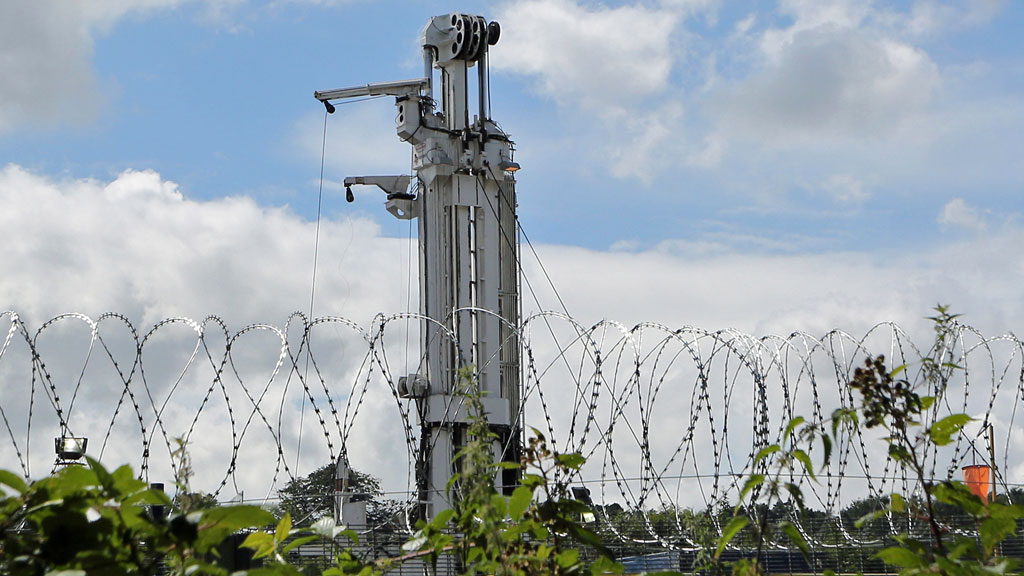Homeowners in legal bid against fracking
If an Englishman’s home is his castle its battlements are being extended all the way to the centre of the earth in the war against fracking.
Today pressure group Greenpeace assembled home owners from Lancashire and Sussex whose homes are close to proposed fracking sites to mount a legal challenge to prevent fracking companies drilling underneath the homes of people who don’t want it.
It’s a legal bid to try and make England virtually unfrackable unless the law is changed.
“This is about people asserting their legal and democratic right,” said Anna Jones, senior campaigner with Greenpeace.
The pressure group have launched a website wrongmove.org where homeowners can find out, using their postcode, whether they are living near a potential fracking operation.
English common law doesn’t entitle landowners to the mineral rights beneath their home – oil and gas companies lease extraction rights from the Crown Estate.
However, Greenpeace lawyers argue that the ground itself does belong to the landowner. For that reason, they claim that a company drilling under private land is trespassing unless they are given permission by the owner.
That could be a big problem for fracking companies like Cuadrilla and Celtique Energy who have interests in Lancashire and Sussex.
Fracking works by drilling down hundreds of meters to get to seams of shale rock and then drilling horizontally, sometimes for a kilometre or more through the shale beds before fracking the gas out.
The fracking companies’ strategy is to drill horizontally in many directions from a single drilling site or “pad”.
Like subterranean spokes on a giant wheel – this is the most efficient, and least disruptive way of getting gas out of overcrowded Britain.
If one or two landowners in each direction oppose fracking on their property it could seriously limit the amount of drilling a company can do – potentially making it uneconomical.
Greenpeace says it hopes their campaign will create “a patchwork of ‘no-go’ areas for the fracking industry across the country.”
Lancashire dairy farmer Andrew Pemberton has joined the legal action. His farm is close to a proposed fracking site optioned by Cuadrilla Resources.
“My biggest worry is pollutants,” he said. Water supplied that feed his animals come from aquifers beneath the Lancashire Fylde.
He’s concerned about the risk of fracking operations contaminating the water supply.
“We’re on a brook that would bring most of that water right to my farm.” he said.
Fracking companies have none other than former Harrod’s owner Mohammed Al Fayed to thank for this latest headache.
Seeking a share of profits he sued an oil company drilling under his Surrey estate. While the Supreme Court denied him any oil revenues – they are owned by the crown – it did rule the company had trespassed on his land by drilling without permission
The case ended up in the Supreme Court where Star Energy were forced to back down.
Fracking company Cuadrilla said all previous mining, tunnelling and drilling has never been disrupted because of legal challenges.
Writing in a statement : “We are confident that new subsurface shale development that safely offers energy security, skilled jobs and community benefits will in due course be no different.”
Fracking companies are in discussion with government about changing the law to prevent landowners from using common law to prevent drilling activities.
But it’s likely new legislation making their lives easier could take a long time to become law.
Follow @TomClarkeC4 on Twitter.
